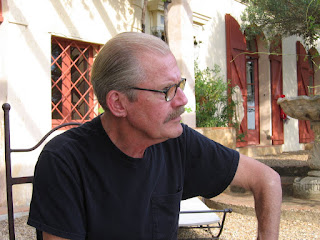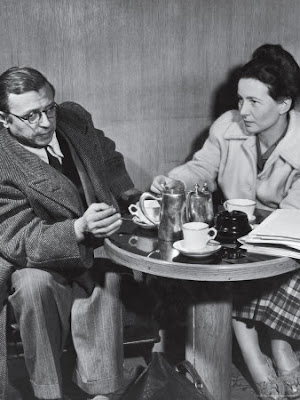Dialogue with Alexandre Gilbert on David Allison*
*This Dialogue was originally posted, thanks to Alexandre Gilbert, on The Times of Israel blog, 30 September 2017, featuring all four parts. For reading's sake, these questions are reblogged here, beginning with the very first on David Allison's 'New Nietzsche'.
Alexandre Gilbert ::
Could you tell us the meaning of what David Allison calls the New Nietzsche ?
 Babette Babich ::
Babette Babich ::
Dave Allison coined the title term, the ‘new Nietzsche’to express a distinctively European, specifically: ‘continental’ Nietzsche. This reflected Martin Heidegger’s Nietzsche as this influenced a wide range of French interpreters. This range or profusion was the most remarkable thing about Allison’s book collection translating these French voices, foremost among whom for Allison and myself was Jean Granier, author of a massive book on Nietzsche and truth (still as yet unavailable in English) in David’s pathbreaking collection.
Alexandre Gilbert ::
Could you tell us the meaning of what David Allison calls the New Nietzsche ?
 Babette Babich ::
Babette Babich :: Dave Allison coined the title term, the ‘new Nietzsche’to express a distinctively European, specifically: ‘continental’ Nietzsche. This reflected Martin Heidegger’s Nietzsche as this influenced a wide range of French interpreters. This range or profusion was the most remarkable thing about Allison’s book collection translating these French voices, foremost among whom for Allison and myself was Jean Granier, author of a massive book on Nietzsche and truth (still as yet unavailable in English) in David’s pathbreaking collection.
Thus, this slim volume — and David loved ‘slim volumes’
— altered the landscape of Nietzsche interpretation. David’s book also featured Jacques Derrida, Gilles
Deleuze, Pierre Klossowski, Michel Haar and Paul Valadier, Maurice Blanchot,
and Sarah Kofman, in addition to David’s personal favorite —mysterious to me as
David was a dedicated atheist — Henri Birault.
For Anglophone readers who had been brought up on the mind-numbing
limitations of analytic accounts of Nietzsche, The New Nietzsche was everything something dubbed ‘new’ really
ought to be: it was really new, this
was not just publisher’s hype. What is interesting is that this book appeared
forty years ago, ushering in a bunch of imitators, the new this and the new
that. To this day, just because analytic philosophy has only tightened its
death grip on the field, the new Nietzsche remains fruitful for scholars.
Indeed, it was so valuable that when David wrote his own book he highlighted the
same orientation: Reading the New Nietzsche.
The journal New Nietzsche Studies was
founded in 1996 to express an explicit openness to non-analytic readings and it
remains a unique voice in a sea of ‘grey’ scholarship as Nietzsche would speak
of it.




Comments
Post a Comment